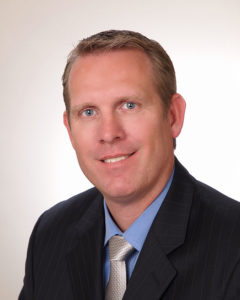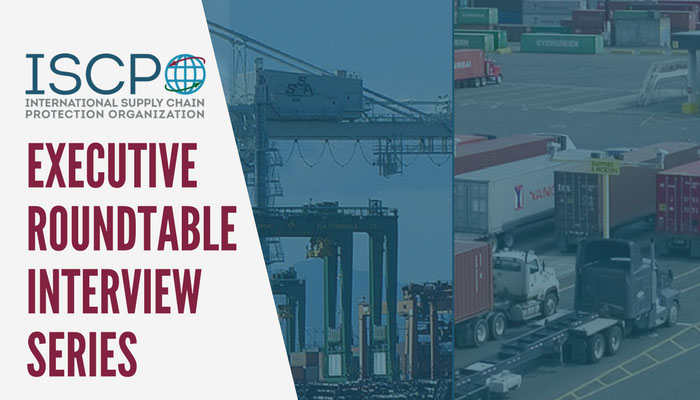As part of our Executive Roundtable Interview Series, we sat down with industry veteran Wayne Hoover, CFI, Senior Partner, Wicklander-Zulawski & Associates. Wayne has personally conducted over a thousand interviews and interrogations on incidents ranging from arson to theft over the last 27 years. He also helped create the Certified Forensic Interviewer (CFI) designation that holds interviewers to a higher standard of obtaining the truth. In this capacity, he oversees all the divisions of CFIs, of which there are over 1800 CFIs around the world, as well as the members of the International Association of Interviewers.

An active ISCPO board member, he provides a unique perspective when it comes to setting best practices in interview and interrogation techniques. We asked him to share his take on where the industry is going in combating crime and how LP practitioners can effectively work with law enforcement to mitigate loss.
ISCPO: How has the industry evolved since you started out, especially related to how technology aids in interviewing/investigations?
When I started in 1991, I had no interviewing experience whatsoever. WZ taught me from the ground up in all things interviewing. Luckily, we were ahead of the curve in that we video recorded every interview we conducted. I knew as soon as I got back to the office, I would be sitting down with my peers to review the interview. Once I started training others, I noticed we were unique in regard to the recording of the interviews. Many people were sent to our seminars and approved to do interviews after attending with no follow up to help them get better. This has always been a concern for us as trainers, and recently the technology has enabled us to start to provide the opportunity for interviewers to go online and practice interviewing without the legal liability that happens in real life situations. Now using Artificial Intelligence and coaching, an interviewer can practice over and over in different types of scenarios and different type of personalities to get better. The Link has been instrumental in providing feedback for interviewers to take the knowledge they learn in a seminar and then to implement with feedback, in the same manner, I learned so many years ago.
In the same area, we noticed an attack on interviewing from many different sides, both internally and externally. We had already seen the change from the Polygraph being a tool in helping solve cases to being pretty much eliminated from the polygraph act of 1989. That led to the creation of the Certified Forensic Interviewer (CFI) designation. This created a designation that held interviewers to a higher level of professionalism, with the idea that interviewers will hold themselves through the association to that higher standard to then press that forward to others in our field before we saw legal changes being forced to the industry.
While those are some changes, I am still perplexed that the recording of interviews is still a minority in both the private and public sectors. I also still see people doing interviews without any real accountability, whether it be through mentorship or certifications. Interviewing is an area of the profession that can have the highest legal ramifications and many people do not even know the regulations/laws that apply to them. Like anything, when it goes bad, that is when people start asking what we can do different, that is too reactive in my opinion. While I have seen a lot of changes over my years, we still have a long way to go to establish standards and consistency in our profession.
ISCPO: Can you share the best techniques to conduct an effective interview and/or interrogation?
There have been several changes over the years regarding interviewing. An interviewer hopefully realizes there is no one way to interview that is always going to be successful. An interviewer must remain flexible to case facts, personalities, and the goals of the conversation. The 3 main techniques that we use currently are the WZ Non-Confrontational Method, the Participatory Method and the Cognitive Interview.
The Cognitive Interview is a great way to obtain information from a victim, witness or suspect. It is a way to obtain more information through the technique. Studies show much more information is obtained using this technique that can help gather information that can be useful to a case.
The Participatory is useful when trying to gather information that will give the interviewer an idea of the person’s understanding of a process, policy, or to obtain an alibi. We find this technique to be beneficial as part of investigation.
The WZ Non-Confrontational Method is used mainly on an individual when you are trying to obtain a truthful account of their involvement with a situation. It works across many case types, personalities and environments. As the name says, it is very non-confrontational, rapport driven, while treating an individual with dignity and respect.
ISCPO: Given your depth of experience, what are the top three tips LP professionals should remember when working with Law Enforcement when conducting interviews/investigations?
This seems so basic to me, obviously understanding what their job is and how it differs from yours, but also the similarities. Your job is to protect the assets of your company…their job is to protect the assets of the community in which they serve. Obviously similar jobs. Police deal with laws and some policies, you deal with policies and some laws. Out of respect, understanding the laws and policies of the other is beneficial to all involved. You have a boss to answer to, and so do they. Difference is your boss is within the actual organization. Theirs is within their organization, but also within the prosecutor’s office, and then a judge’s courtroom.
I believe you can take the three tips from my answer. Respect, understanding, and know the laws that your case involves. This helps remove any animosity and thoughts of any side feeling superior to the other.
ISCPO: What are the biggest challenges facing supply chain protection & security professional, specifically around how Ecommerce has changed the landscape of criminal behavior?
Every person may feel differently from their experience and I will give a brief idea of the areas that come to mind. I could expand on these greatly, but I believe everyone can see the point just by me mentioning them.
I find the proliferation of cell phone cameras, cyber, and even GPS being a concern for Ecommerce. While these things are all beneficial in everything we do during an investigation, they are also used by the criminals in a way that makes our job more difficult.
One area that is overlooked is the Vendor Fraud of this part of the business. Many relationships are created without proper investigation upfront. I think many would be shocked if they ran a state report on their vendors to find how many have been classified as irresponsible partners and even forbidden to do work within federal, state and local governments.
Why did you participate on the ISCPO board?
I have followed ISCPO since it was created and was always impressed with their goals, uniqueness and leadership. Last year I attended the conference for the first time and that solidified how I felt about the ISCPO. I am always trying to expand my knowledge and I believe this group can provide that continuing education in an area that I would like to know and understand more. On the other side, I believe I have some experiences that I can add value to the board and the membership.
Thanks Wayne!


